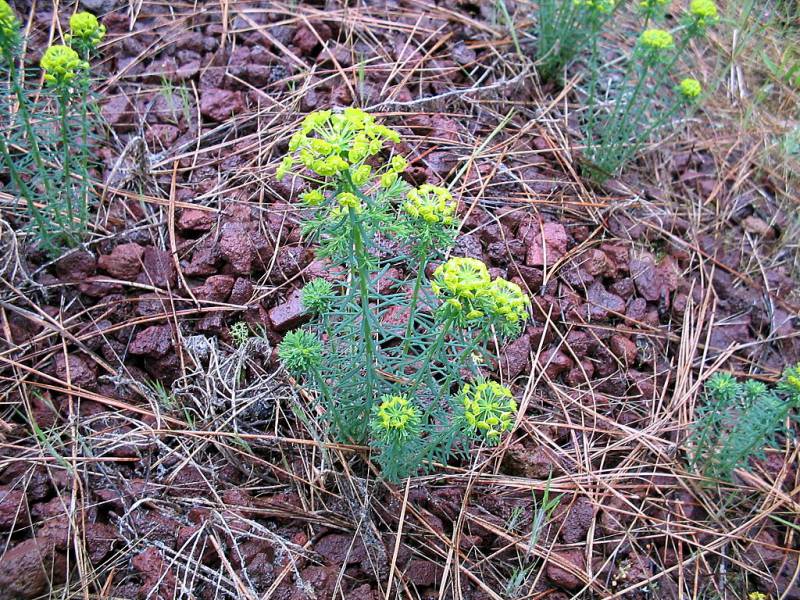Euphorbia hypericifolia
Euphorbia cyparissias
cypress spurge
Leaves alternate, the lower ones linear, 1-3 cm. long and 1-3 mm. broad;
leaves of the axillary upper branches more numerous and narrower.
Inflorescence a many-rayed umbel, the floral bracts broadly ovate-cordate, 12-16 mm. long;
flowers tiny, monoecious, borne in involucres; staminate flowers numerous, naked, each consisting of a single stamen; pistillate flower single and terminal in the involucre;
involucres about 3 mm. long, bearing 4 reddish-green, horned glands.
Capsules finely warty, separating into three 1-seeded segments.
Euphorbia hypericifolia
Euphorbia cyparissias
Occurring in scattered locations on both sides of the Cascades crest in Washington; British Columbia to California, east across much of North America to the Atlantic Coast.
- Local floras:
BC,
OR,
WA
- Local Web sites:
Flora NW,
PNW Herbaria
WildflowerSearch
iNaturalist (observations)
USDA Plants Database
- LBJ Wildflower Center
- SEINet
- Plants of the World Online
- Encyclopedia of Life
- Wikipedia
- Google Image Search


